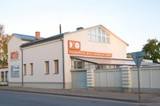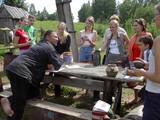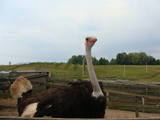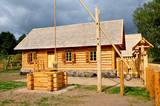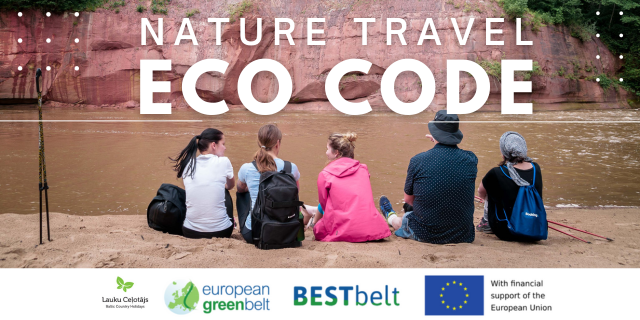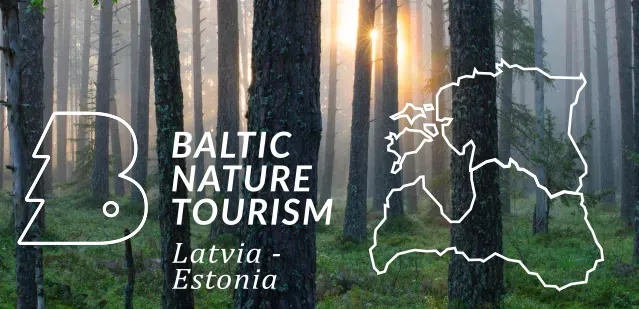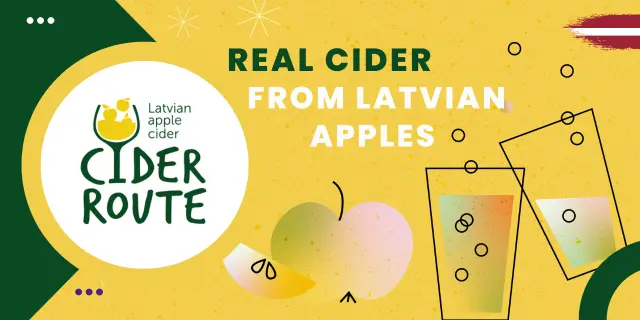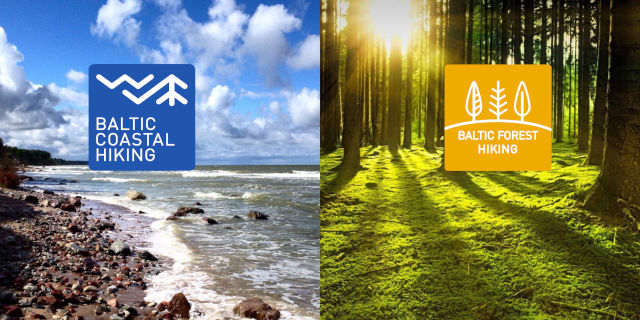Kontaktinformation
Related objects
| Foto | Name | Beschreibung |
|---|---|---|
|
This centre is a workshop for eleven potters, including some from the “Potters School.” The centre offers various activities, including master classes, demonstrations of pottery work, and exhibitions of finished products. You can commission products or buy new ones. |
||
|
Visitors can use a potter’s wheel to create a cup, engrave their name and return to pick up the finished product after it has been fired in the kiln. Here you will learn all about the history of pottery. You can buy finished products and enjoy tasty herbal teas. |
||
|
Der Hof "Upenite" befindet sich am südlichen Ufer des Sees Cirisa ezers. Ein ausgezeichneter Bio-Hof, auf dem lettgallische Traditionen gepflegt, Milchprodukte (auch Käse) hergestellt, einheimische Kulturpflanzen (diese kann man auch erwerben) angebaut und die lettgallische Rauchsauna angeboten werden, in der als Saunameister die Wirte arbeiten. Meisterkurse im Backen von Torten organisiert. Lettische Küche: Bauernsuppe (Fleischbrühe mit Grützen), gefüllte Kartoffelpfannkuchen Gulbešnīki, Kartoffelwürste (geriebene unreife Kartoffeln mit gebratenem Schweinfleisch und Zwiebeln), schwarze Johannisbeeren mit Schlagsahne, Kümmelstangen, Kräutertees, Quark mit Sauerrahm, Pfannkuchen aus Sauermilch. Das besondere Gericht: Im Ofen gebackener Karpfen oder gebackene Schleie aus dem eigenen Teich. |
||
|
This farm is an apiary, with hives of bees gathering honey. The farm has won prizes for its products. You can take a tour and learn about the lives of bees and beekeeping products, make your own wax candles, or attend educational seminars. |
||
|
Auf dem Hof Untumi werden eine Pferdeherde gehalten und gezüchtet, sowie Pferde gekauft, die den Anforderungen der historisch gezüchteten lettischen Pferderasse entsprechen. Hier kann man in einem Pferch oder in der Umgebung des Hofes unter der Leitung eines Instrukteurs Reitfertigkeiten erlernen. Im Sommer kann man hier mit einem Pferdewagen, aber im Winter – mit einem Pferdeschlitten fahren. Die Pferde werden zu Hochzeiten und anderen Veranstaltungen verwendet. |
||
|
In der geerbten Wirtschaft (Wohnhaus aus Holz mit dekorativen Zargen und Fensterläden) stellen die Wirte nach alten und modernen Rezepten Käse aus der Milch her, die aus den auf diesem Hof gezüchteten Kühen gemolken wird. Die Besucher können hier Milch, Sauermilch, Buttermilch und andere Milchprodukte verkosten, sowie den Herstellungsprozess beocbachten und an dem Prozess teilnehmen. |
||
|
Ilmārs Vecelis takes part in the “Potter School” of the Latvian Cultural Fund and, therefore, uses ancient pottery methods that have been tested over the course of many centuries in Latgale. You can tour his workshop, attend the opening of the kiln, try your own hand at the craft, and commission and purchase finished ceramics products. |
||
|
Dieser Hof ist ein authentischer Hof aus dem Anfang des 20. Jhs. mit einem Wohnhaus, einer Kornkammer, einem Stall, einer Sauna und einer Schmiede. Hier kann man den Vorführungen einer Folkloregemeinschaft zuschauen, die Sommersonnenwende feiern, an Jahrmärkten des Tages von Mikelis (Herbstsonnenwende) teilnehmen und verschiedene Gewerbe erlernen. Lettische Küche: Klöße, Graupen mit verschiedenen Zutaten, selbstgebackenes Brot, Butter, Käse, Kräutertees und das lettgallische Hausbranntwein Šmakovka. Das besondere Gericht: Brot von Andrupene. |
||
|
Auf dem Hof befindet sich eine Werkstatt für Lederwaren, die Pferdegeschirre, Riemen, Gurte, Ledersäcke u.a. herstellt. Hier wird eine Führung mit der Besichtigung der Ausstellung, mit dem Kennenlernen von Lederarten und mit dem Erwerb von Waren angeboten. Hier wird auch die Möglichkeit angeboten, Lederverarbeitung auszuprobieren. Die Wirtin erzählt über die lettgallische Lebensart. |
||
|
This craftsman produces beautiful ceramics and uses the so-called black or smoke-based technique. You can try your hand at the potter’s wheel and watch as the kiln is opened. You can commission or purchase ceramics. You can also tour the beautiful garden and receive services related to flower design. |
||
|
The craftspeople use natural materials to produce rattles, wind chimes and musical instruments. They teach children how to make pipes out of reeds. Aleksandrs has a collection of some 100 different instruments which he knows how to play. You can commission or purchase products from the craftspeople. |
||
|
Das Motto der Wirtschaft ist: „Hier wird echtes lettgallisches Bier gebraut!“ Die Besucher können an dem Prozess des Bierbrauens teilnehmen, einer Erzählung über Traditionen zuhören und fertiges Produkt verkosten. Zum Bier bietet der Wirt ländliche Leckereien in der lettgallischen Art an. |
||
|
In dem Museum wird der Weg des Brotes von dem Korn bis zum fertigen Brotlaib geschildert, den jeder selber formen kann. Die Besucher können Brot (mit Kräutertees) verkosten und einer theatralischen Vorführung über jede Lebensangelegenheit – Taufe, Hochzeit, Jubiläum u.a. – zuschauen. Bei der Mahlzeit werden auf den Tischen Klöße, Krapavnīks, eine Suppe aus getrockneten Pilzen oder aus Fischen aus dem See gelegt. Mit vorheriger Abmeldung nimmt bei der Veranstaltung auch eine Volkstanzgruppe an. Lettische Küche: Suppe aus Seefischen, Klöße und Gericht Krapavnīks. Das besondere Gericht: Suppe aus getrockneten Pilzen. |
||
|
This potter upholds pottery traditions from the village of Silajāņi. He produces glazed and unglazed products such as dishware, candelabras, etc. You will hear attractive stories about pottery, be allowed to knead some clay and work on the potter’s wheel, and be able to tour an exhibition hall with samples of the master’s work, as produced over the course of the years. You can also commission and purchase products. |
||
|
Auf dem Hof werden Gemüse, Früchte und Beeren gezüchtet und Milchprodukte und andere Produkte hergestellt. Die Besucher können hier Bio-Produkte kaufen, an Arbeiten auf dem Land und bei der Ernte teilnehmen. In dem kleinen Brothaus kann man Brot backen, Käse machen und hausgemachtes Bier (wenn vorher bestellt) verkosten. Die Wirtin kocht Gerichte der Region Latgale: gefüllte Kartoffelpfannkuchen Gulbešnīki mit Pilzsoße, Zwiebacks, ländliche Blutwurst, Vormilchpudding Tatarvans u.a. Die Gäste können einem Gesang in der lettgallischen Mundart zuhören. |
||
|
Here you will find an attractive and interesting story about Burgundy snails and how they are bred. You can tour the farm, receive valuable advice, taste Burgundy snails prepared on the basis of various recipes, and purchase semi-finished products. |
||
|
"Pudniku skula", die alten Töpfertraditionen *Object Inactive*
|
Herr Evalds Vasilevskis ist der Gründer und der Leiter der Gemeinschaft Pūdnīku skūla (Schule der Töpfer) der Kulturstiftung Lettlands. Diese Gemeinschaft wendet die alten Methoden der Keramikbrennung an, bei denen die Keramik im Grubenbrennofen mit einer speziellen Rauchtechnik gebrannt wird. Die Besucher können den Brennofen besichtigen, mit Lehm arbeiten, Keramikerzeugnisse kaufen und beim Öffnen des Brennofens teilnehmen. Diese Handwerker der Schule der Töpfer heißen Besucher willkommen und bieten ihre Erzeugnisse an: Aiga Dātava, Pēteris Gailums, Valentīns Petjko, Aivars Ušpelis, Ilmārs Vecelis, Staņislavs Viļums und Lilija Zeiļa. |
|
|
Der originelle Handwerker ist ein Vertreter einer Töpferschule (Pūdnīku skūla), die die Traditionen ihrer Vorfahren fortsetzen. In seiner Werkstatt "Malny Wylky" (schwarze Wölfe) kann man diesen überlieferten Prozess sehen, angefangen bei einer fußbetriebenen Töpferscheibe bis hin zu einer speziellen Brenntechnik in einem Holzofen in einer Brenngrube. Man kann bei der Arbeit zusehen oder fertige Waren kaufen. Vēsma malt Ölgemeinde und zeigt ihre Arbeiten. |
||
|
The farm grows and offers vegetables, annual and perennial flowers for gardens, as well as decorative bushes and trees. The owners will design gardens and other green areas, sell saplings and accept commissions for the growth of saplings. You can learn all about the secrets of growing decorative plants and receive advice from the owners. |
||
|
Here you will find African ostriches, a South American rhea, an Australian emu, pearl hens, pheasants and peacocks. You can purchase ostrich and other eggs, as well as souvenirs made of eggs and feathers. |
||
|
The craftsman produces practical and household items on the basis of Latvian ethnography, also continuing old traditions related to Latvian blacksmith operations. You can forge your own nail or horseshoe. |
||
|
Der Töpfer Stanislavs Vilums widmet sich der traditionellen Schwarzkeramik und verwendet dazu Ton aus Lettgallen. Dabei verwendet er keine industriellen Werkzeuge und der Brandofen wird mit Holz geheizt. Die Arbeit mit der Töpferscheibe wird demonstriert und der Brennprozess erläutert. Man kann versuchen, selbst mit Ton zu arbeiten. Die Töpferwaren stehen auch zum Verkauf. |
||
|
Der originelle Töpfer lädt zum Besuch ein, er bietet eine Führung an, zeigt seinen Arbeitsprozess, lässt die Besucher am Entstehungsprozess teilhaben und lädt auch Interessenten ein, beim Öffnen des Brennofens dabei zu sein. Man kann hier auch Töpferarbeiten erwerben. |
||
|
Das Dorf der Altgläubigen Slutiški (das einzige seiner Art in Lettland) befindet sich an einem sehr landschaftlich schönen Ort – in dem Naturpark der Bögen des Flusses Daugava. In dem Haus der Altgläubigen ist ein Museum eingerichtet, wo man eine Vorstellung von der Lebensart der Altgläubigen bekommen kann. Hier wird das thematische Programm Das Erbe der Altgläubigen der Region Latgale angeboten. |
||
|
In der Werkstatt kann man Keramikartikel erstehen, dem Töpfer bei der Arbeit zusehen oder auch bei der Tonbearbeitung teilnehmen. Es gibt die Möglichkeit, eine Brennofen-Eröffnung zu erleben. |
||
|
This farm has some 150 hives of bees which are carefully tended by beekeepers. The farm also produces nectar plats such as buckwheat, clover and phacelia. You will learn all about beekeeping and taste and purchase beekeeping products. |
||
|
Der Heilpflanzenhof „Kurmīši“ befindet sich in der sauberen und landschaftlich reizvollen Gegend des Naturparks Schleifen der Daugava, und dem Landschaftsschutzgebiet Obere Daugava. Damit die natürlichen Standorte der Heilpflanzen erhalten bleiben, werden auf dem Hof „Kurmīši“ seit 1994 etwa 40 Heilpflanzen (Arten und Sorten) angebaut. Für Liebhaber von Arzneipflanzen und sonstigen Besuchern werden Führungen zum Thema Anbau und Verarbeitung von Heilpflanzen sowie zur Imkerei auf dem Hof angeboten. Anschließend kann man die Erzeugnisse des Hofs, Kräutertees, die mit Honig am schmackhaftesten sind, verkosten und kaufen. Eine besondere Atmosphäre entsteht durch die Kerzen aus echtem Bienenwachs. Auf dem Hof sind Picknickplätze vorbereitet und es werden Kerzen gegossen. Entsprechend kann man auch edle Souvenirs aus Bienenwachs kaufen. |
||
|
Am Fuß vom Ludzas Schlossberg befindet sich ein Handwerkerzentrum. Es lädt euch ein auf eine Führung über die Handwerkergeschichte und Traditionen im altertümlichen Latgale kennenzulernen, die alten Handwerke in dem Suprādku Zimmer zu erschließen und in den Keramik-, Web- und Schneiderwerkstätten mitzumachen. Im Ausstellungssaal haben Sie die Möglichkeit die Werke der Meister der Umgebung zu sehen, sowie den allmonatlichen, letgallischen Grünen Markt zu besuchen. Im Salon können sie ca. 70 Arbeiten der Handwerker kaufen. Sie haben auch die Möglichkeit die Volkstrachten aller lettischen Regionen, Leinen und Wollbekleidung zu bestellen. Vorher angemeldete Ausflugsgruppen haben die Möglichkeit lettgallische Speisen zu kosten. Lettische Küche: Graue Erbsen mit gebratenem Speck (Škvarkas), Brötchen Asuškas in Sauerrahmsoße, lettgallische Teigringe und das lettgallische Hausbranntwein Šmakovka. Das besondere Gericht: Lammhoden und Krautsuppe mit Lammfleisch. |
||
|
The workshop and “Dream Hut” exhibition hall at this venue offer a look at turned wood products such as candelabras, dishware, beer steins, vases, glasses, mortars and pestles, small boxes, wooden paintings, etc. You can commission and purchase products and watch the master at work. |

